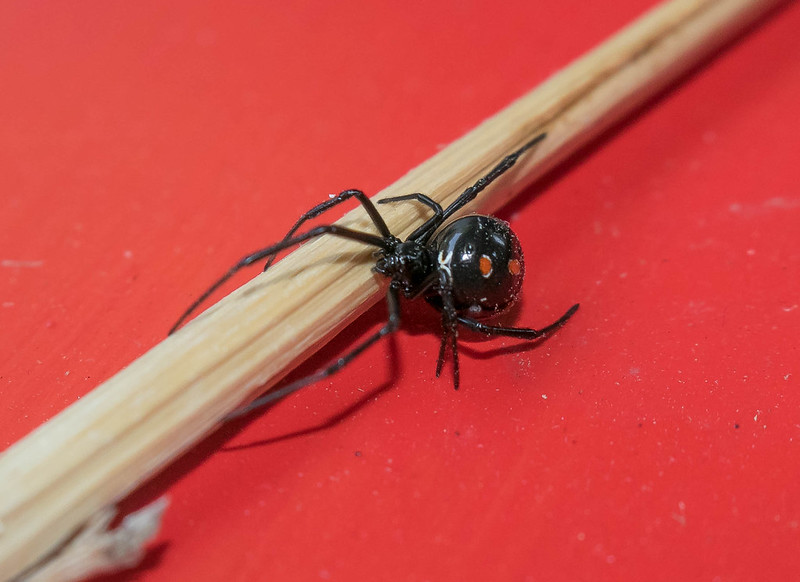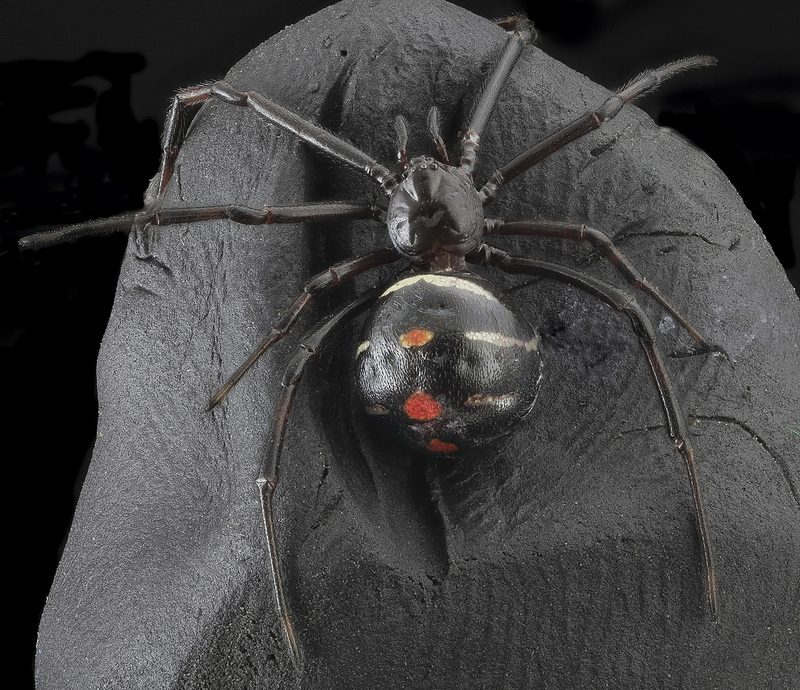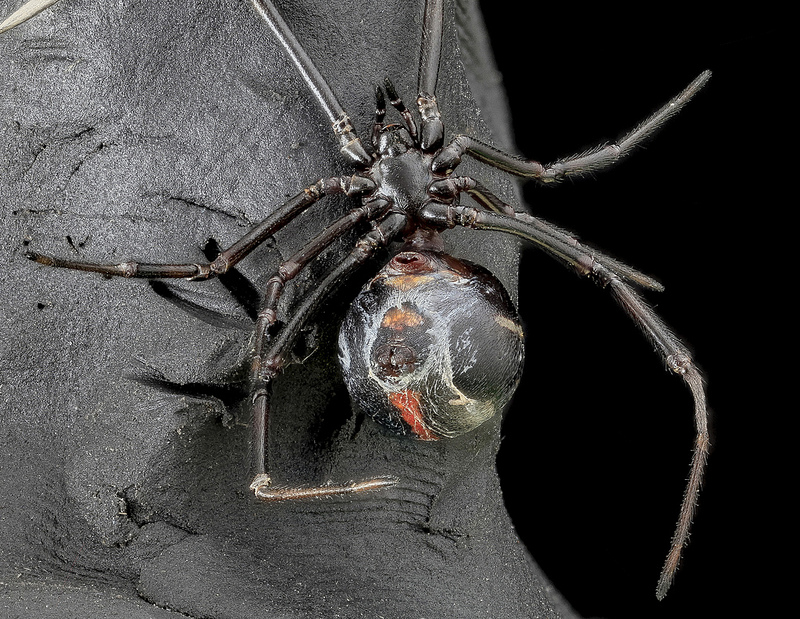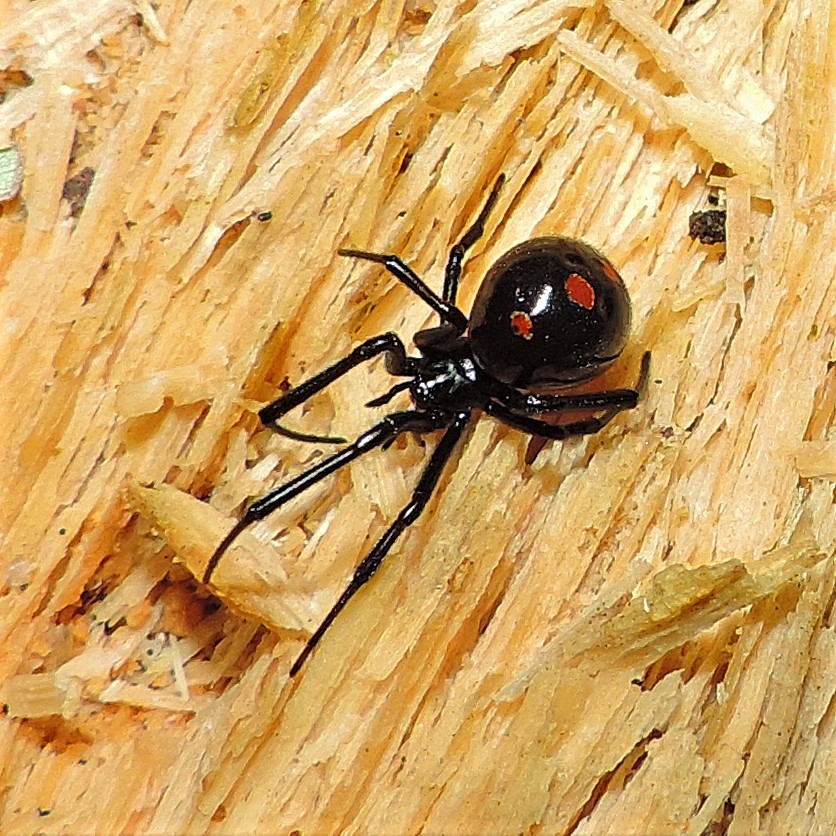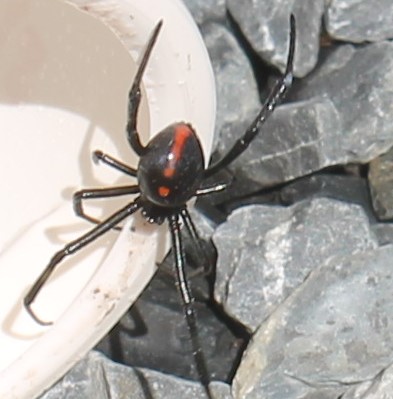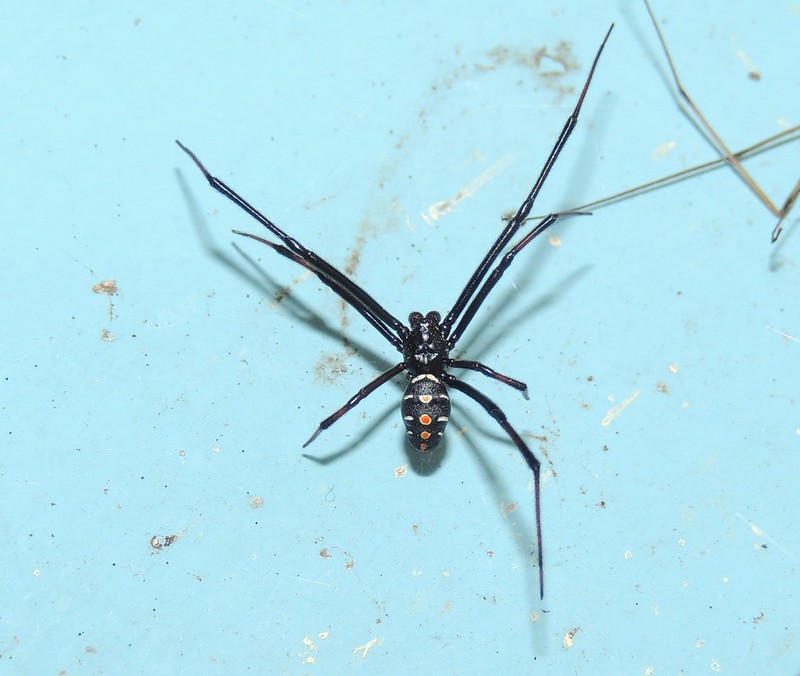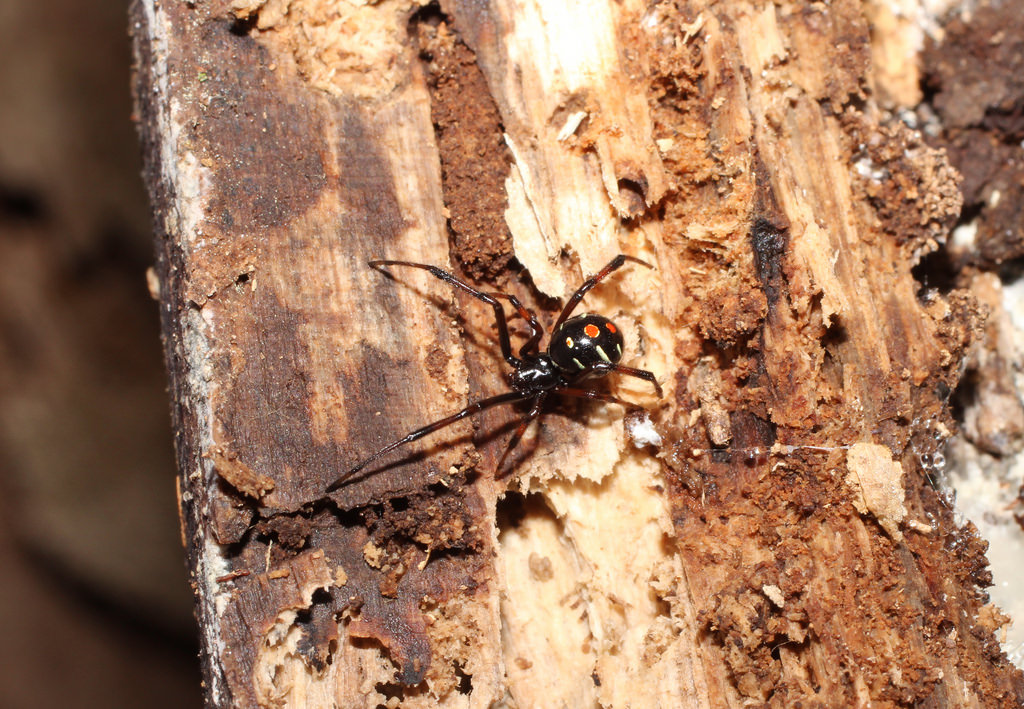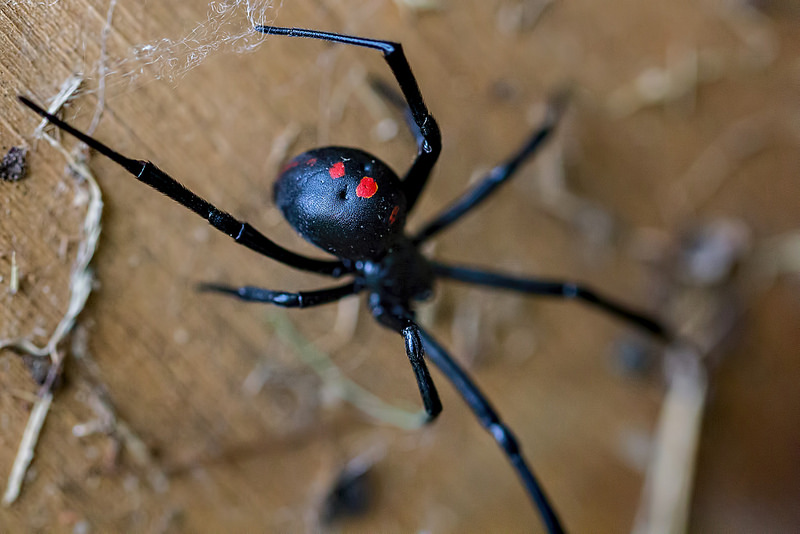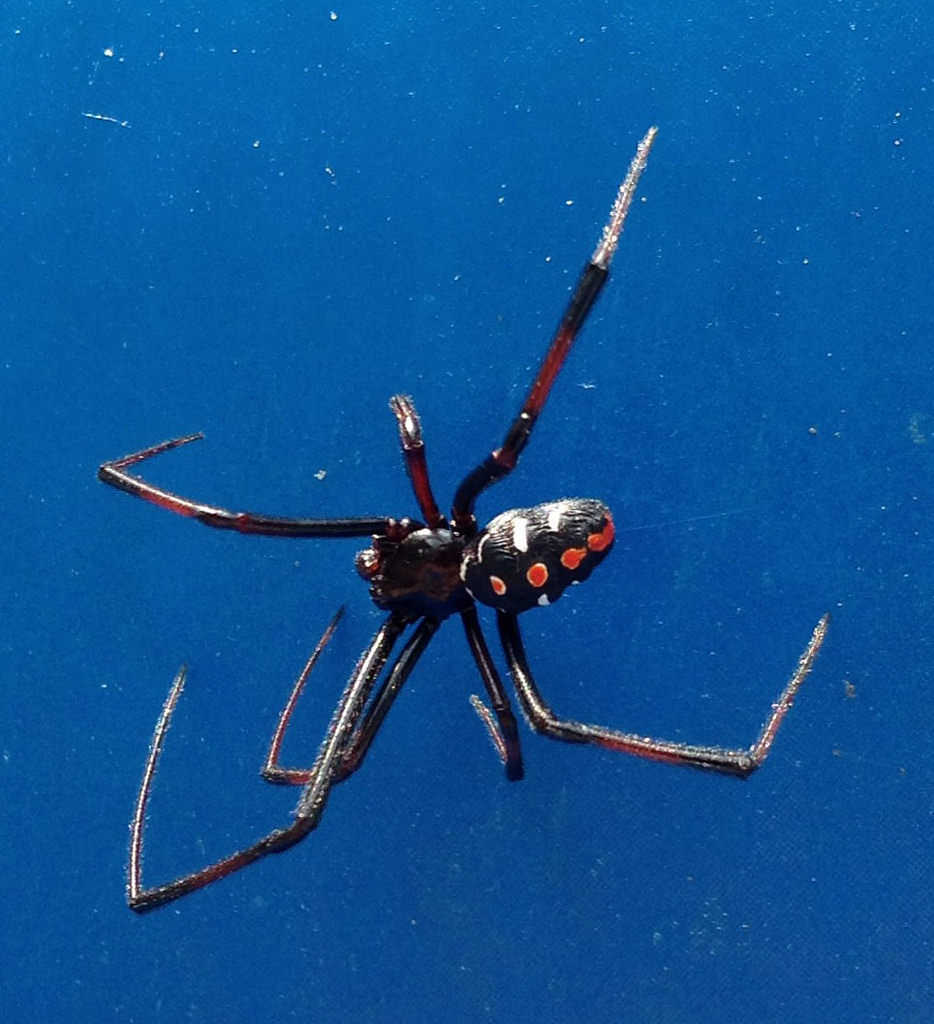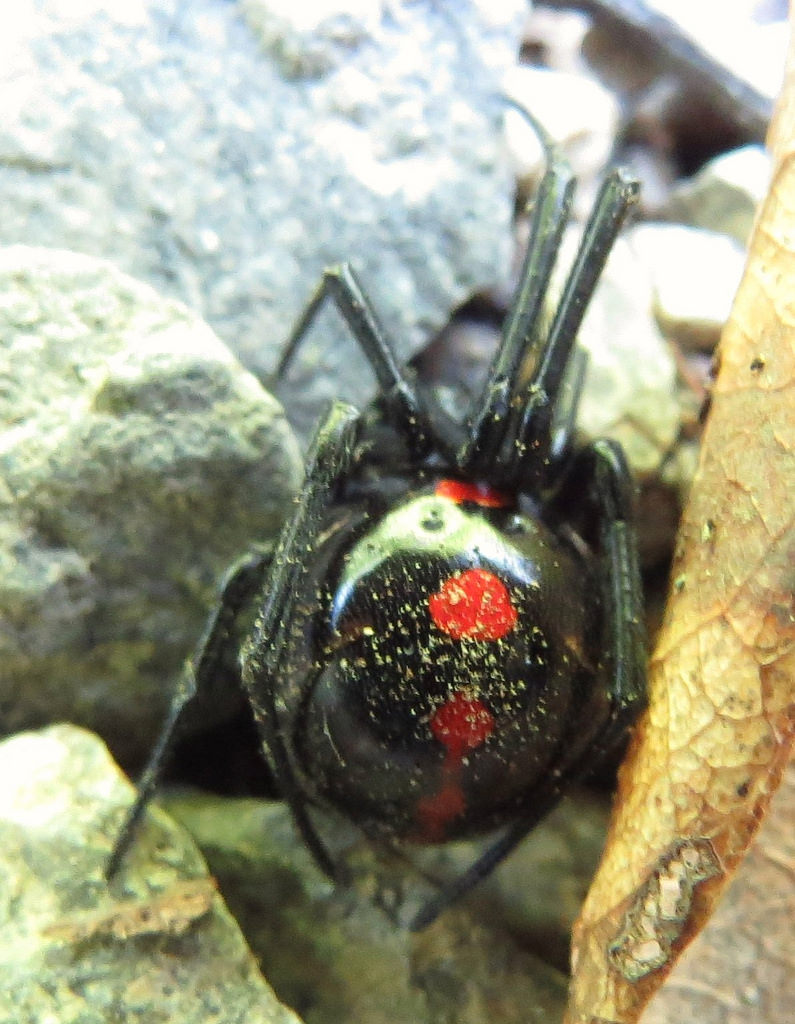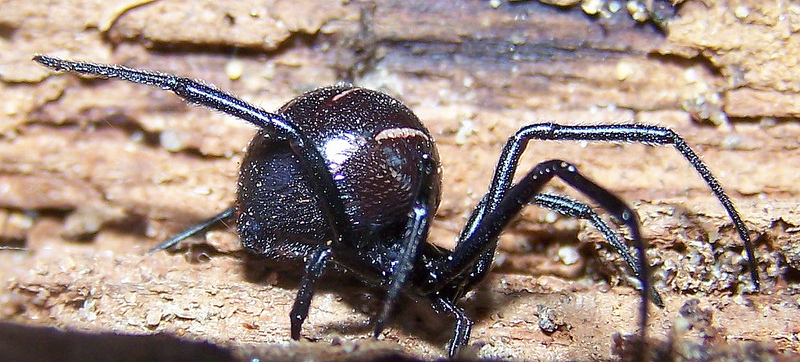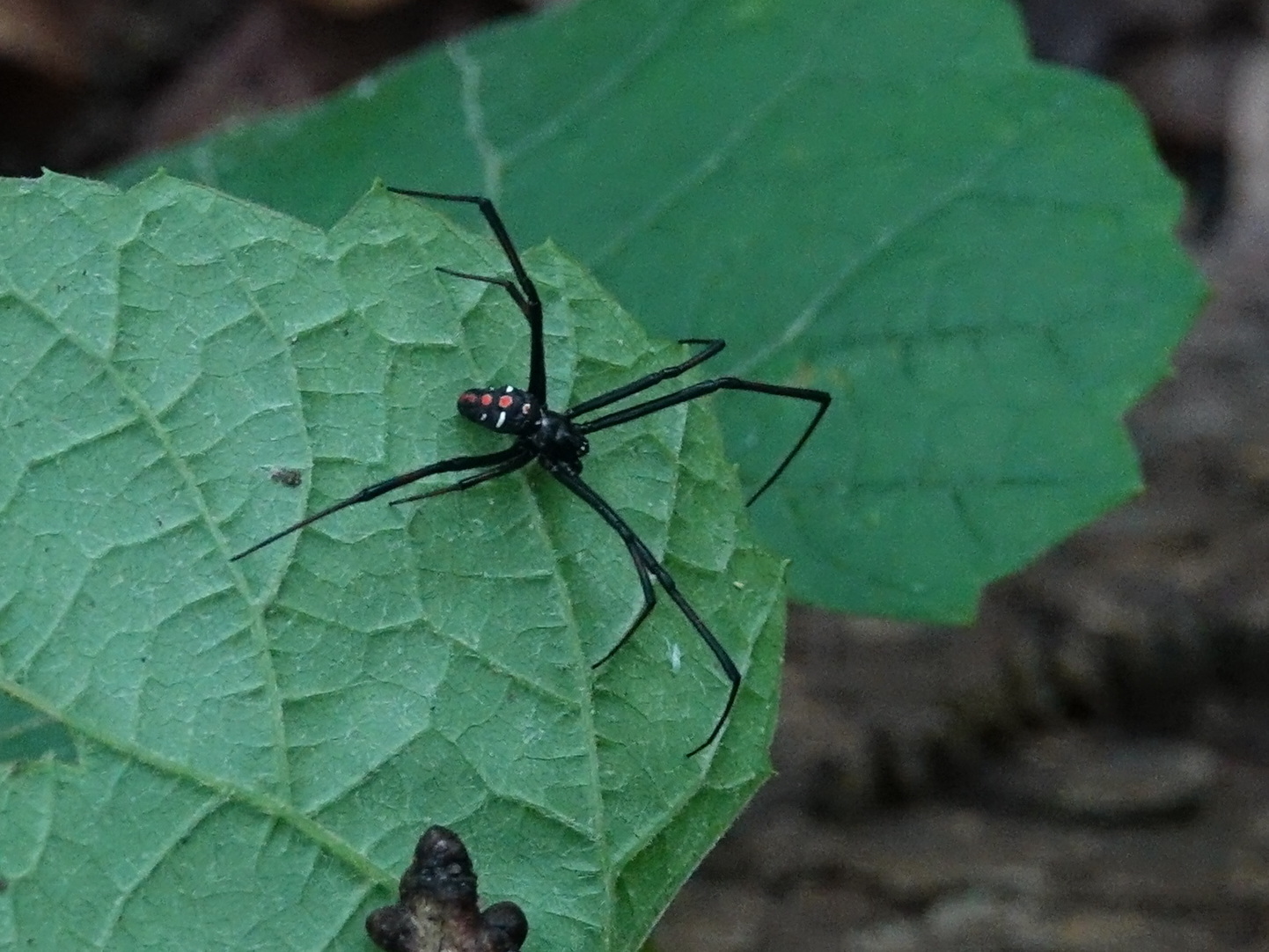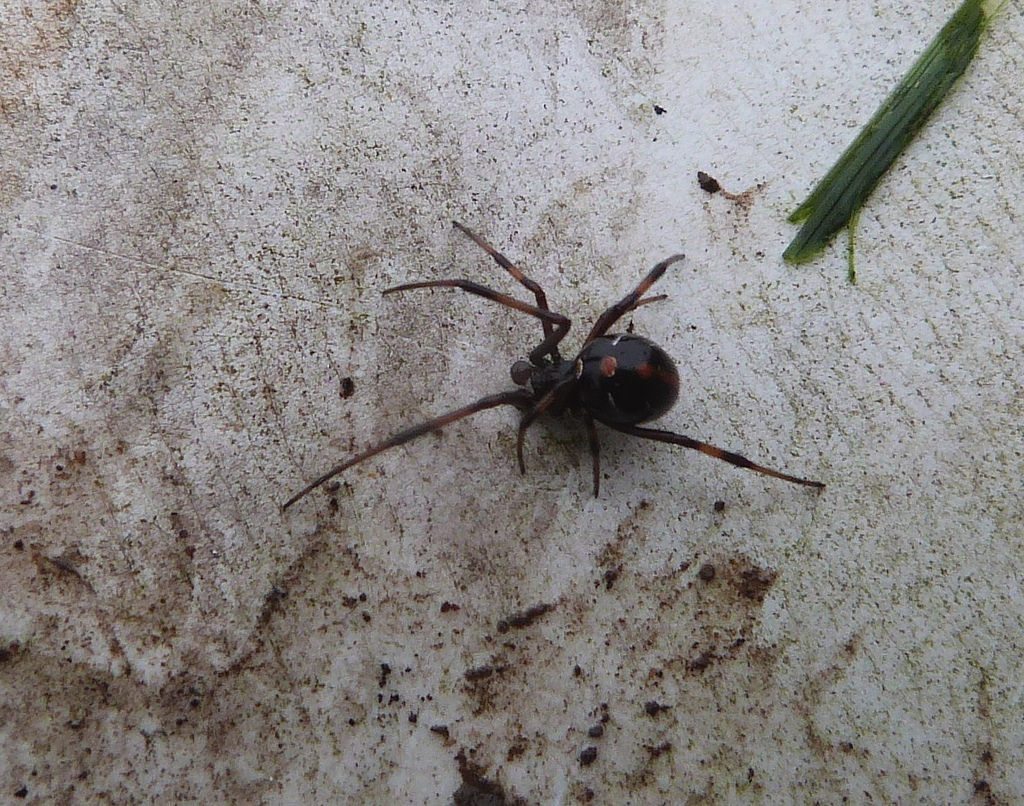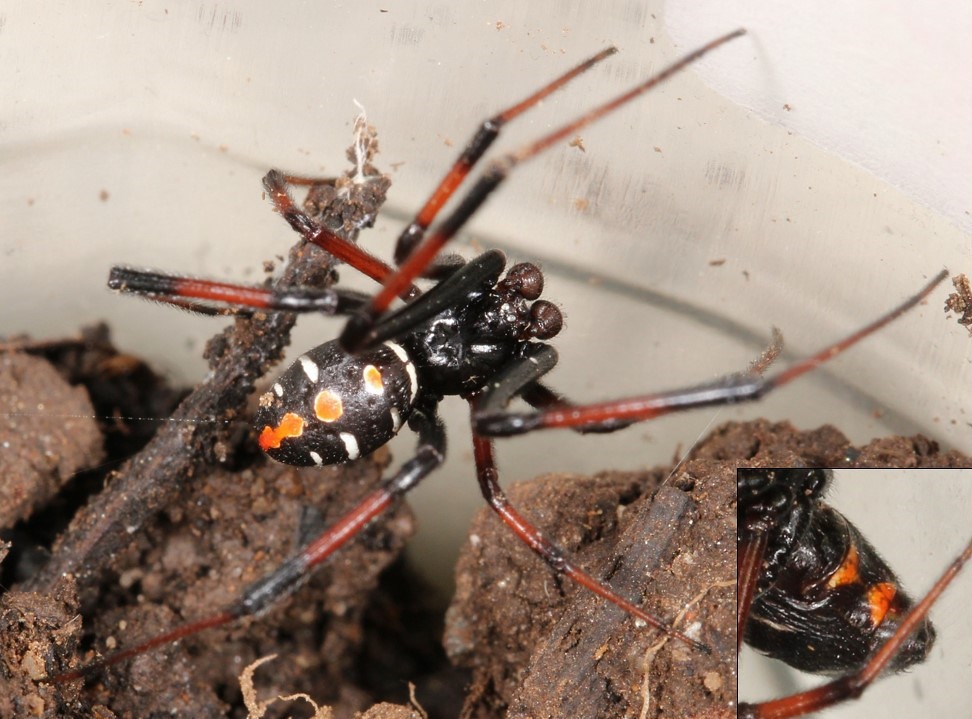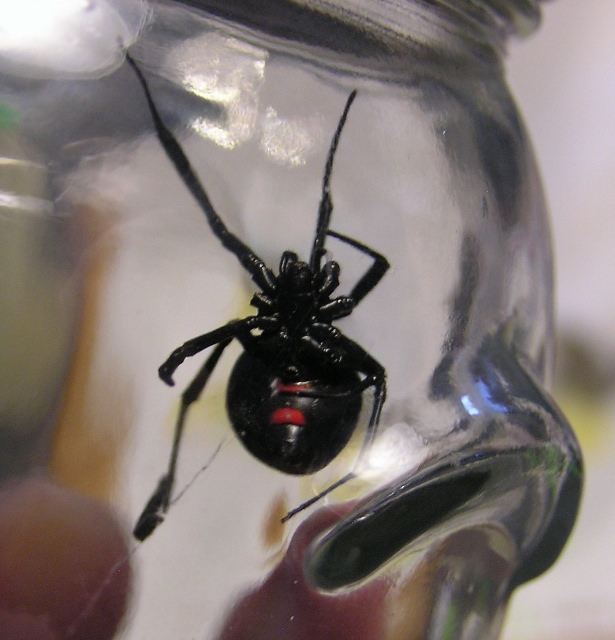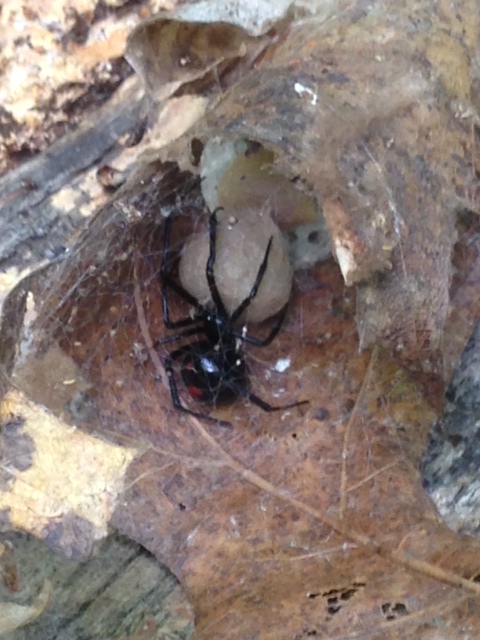Map Snapshot














34 Records
Seasonality Snapshot
Source: Wikipedia
| Latrodectus variolus | |
|---|---|
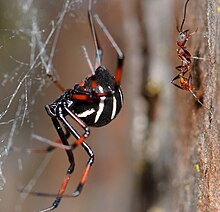
| |
| Female | |

| |
| Male (with damaged legs) | |
| Scientific classification | |
| Domain: | Eukaryota |
| Kingdom: | Animalia |
| Phylum: | Arthropoda |
| Subphylum: | Chelicerata |
| Class: | Arachnida |
| Order: | Araneae |
| Infraorder: | Araneomorphae |
| Family: | Theridiidae |
| Genus: | Latrodectus |
| Species: | L. variolus
|
| Binomial name | |
| Latrodectus variolus Walckenaer, 1837[1]
| |
Latrodectus variolus, the northern black widow spider or northern widow, is a venomous species of spider in the genus Latrodectus of the family Theridiidae. The population is closely related to the southern black widow, Latrodectus mactans, and the western black widow, Latrodectus hesperus, of the genus.[citation needed]
In North America, the species is commonly found in Middle Atlantic states (New Jersey, Delaware, Connecticut, Maryland). During the April–May mating season, it can travel north along the coast as far as Massachusetts in summer, and rarely, in southern Ontario and southern Quebec,[2] Michigan,[3] and at least as far northwest as parts of Wisconsin.[4]
A bite may cause latrodectism, and requires medical attention in the case of increasingly severe discomfort or spreading local redness accompanied by severe pain.[5] Other symptoms, which can last up to a week, may include body aches, severe pain, fever, inflammation, nausea, and vomiting.[6] Bites to humans are not typically deadly except in infants and the elderly.[citation needed] The LD-50 has been measured in mice as 1.20–2.70 mg (0.019–0.042 gr); each spider contains about 0.254 mg (0.0039 gr) of venom.[7]
Unlike for the related Latrodectus mactans, as of 2015[update] no antivenom was available.[citation needed]
References
[edit]- ^ "Taxon details Latrodectus variolus Walckenaer, 1837", World Spider Catalog, Natural History Museum Bern, retrieved 2016-04-26
- ^ Wang, Yifu; Casajus, Nicolas; Buddle, Christopher; Berteaux, Dominique; Larrivée, Maxim (2018). "Predicting the distribution of poorly-documented species, Northern black widow (Latrodectus variolus) and Black purse-web spider (Sphodros niger), using museum specimens and citizen science data". PLOS ONE. 13 (8): e0201094. Bibcode:2018PLoSO..1301094W. doi:10.1371/journal.pone.0201094. PMC 6082516. PMID 30089136.
- ^ "Northern Black Widow Spider (Latrodectus variolus)". Plant & Pest Diagnostics. Retrieved 2023-05-09.
- ^ pliesch (2018-05-22). "Black Widow Spiders: The Hermits of Door County, Wisconsin". Insect Diagnostic Lab. Retrieved 2023-05-09.
- ^ "California Poison Control Offers Tips about Spider Bites" (PDF). 2015-07-15. Archived from the original (PDF) on 2015-07-15. Retrieved 2023-05-09.
- ^ Rochlin, Ilia; Hockett, William; Francis, Arie (2021). "A case of pediatric northern black widow spider (Latrodectus variolus) bite in New York, USA". Toxicon. 194: 86–89. doi:10.1016/j.toxicon.2021.02.001. PMID 33610637. S2CID 231989262. Retrieved 26 April 2023.
- ^ McCrone, J.D. (December 1, 1964). "Comparative lethality of several Latrodectus venoms". Toxicon. 2 (3): 201–203. doi:10.1016/0041-0101(64)90023-6. PMID 14298228.
External links
[edit] Data related to Latrodectus variolus at Wikispecies
Data related to Latrodectus variolus at Wikispecies


